Transition Days and Nights in Luxembourg and France
By rob hopkins 7th October 2020 Culture & Society
News, articles, interviews and stories from Rob Hopkins’ Covid-secure recent tour.
When COVID first arrived and the UK and most of Europe went into lockdown, all my proposed trips to France, Belgium and other places vanished overnight. All the speaking tours and events lined up to promote the publication of the French version of ‘From What Is to What If’, retitled as ‘Et Si’, disappeared. Months passed. Then September arrived, and the dates to which those talks had been tentatively rescheduled loomed closer and closer. Would they go ahead?
With cases rising on both sides of the Channel, and lockdowns looming, it was decided that they would go ahead, but with the appropriate measures in place. And so, at 6am one September morning, I boarded the train in Totnes, the first I had set foot on since mid-February, and headed to London, boarded a half-filled Eurostar to Brussels, and from there to Luxembourg. Mask on all the way, regular hand-sanitising, you know the drill.
In Luxembourg I was the guest of CELL (the Centre for Ecological Learning Luxembourg), who have been the organisation promoting Transition in Luxembourg since 2009. They are pretty unique among national Transition Hubs in that they are funded by the Sustainable Development Ministry in the country, and have a team of around 20 people working on a range of different projects and offering support to initiatives on the ground.
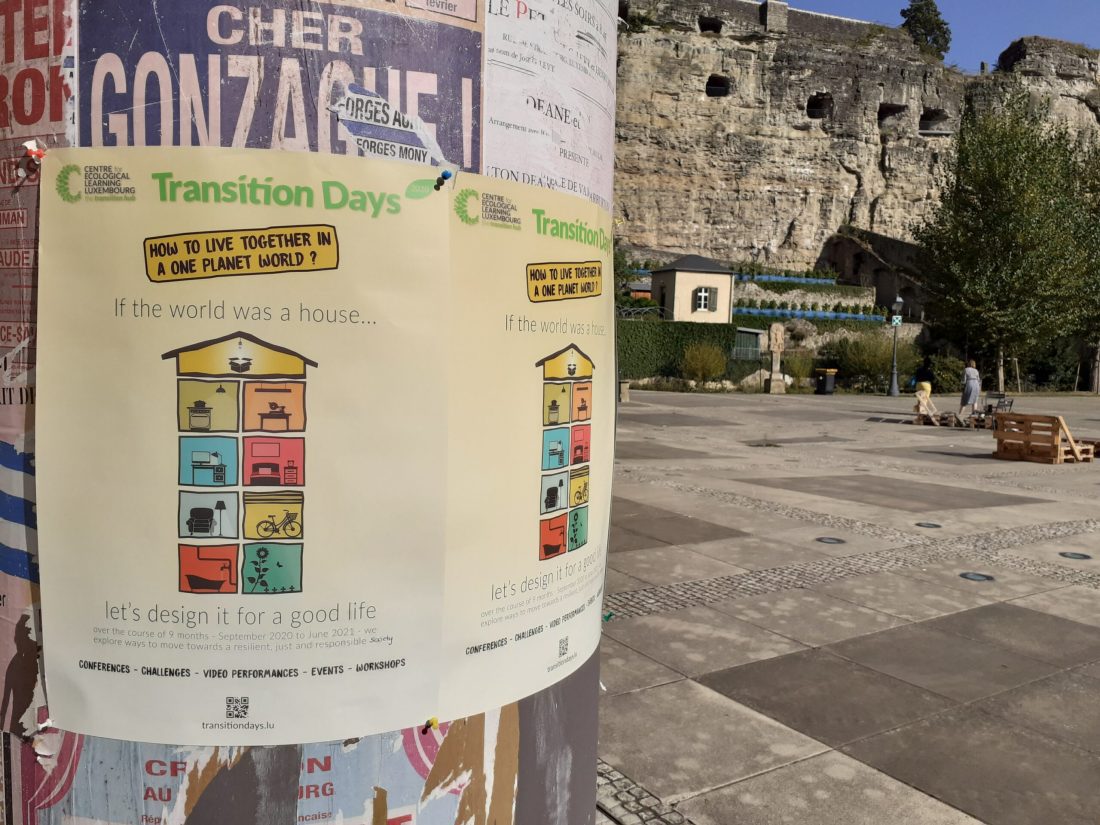
The next 3 days were rather a blur, and were part of the launch of their ‘Transition Days‘ festival, so here are some of the key impressions and the key moments:
I was interviewed for Luxembourgish TV by one of the country’s leading political journalist/interviewers, a kind of female Jeremy Paxman, the first time I’ve had an interview like that. It was fascinating. I might write it up separately as it was a fascinating experience.
Bits of the interview were then used in a show called “Kloertext”, and used to promote conversation between the Minister of Economy Franz Fayot, the general secretary of CSV (Christian-Socialist party), Blanche Weber (president of Movement écologique), government energy minister Claude Thurmes and René Winkin (director Fedil: Federation of Luxembourgish Industries). You can see the show here.
A social evening party in a former steel works meeting Transitioners and other activists…
I did a lot of press interviews while I was there. Here is a selection. With the podcast Delano, with WOXX, with Infogreen (‘An interview with Mr Transition’), in The Journal (‘Imagining another world’) and with Quotidien…
I visited the Äerdschëff Luxembourg Project, co-ordinated by CELL and funded by the government, an amazing Earthship structure consisting of over 900 tyres in its retaining wall, with local timber frame, hemp block flooring. Amazing. Created by a mixture of volunteers and professionals and very beautiful…
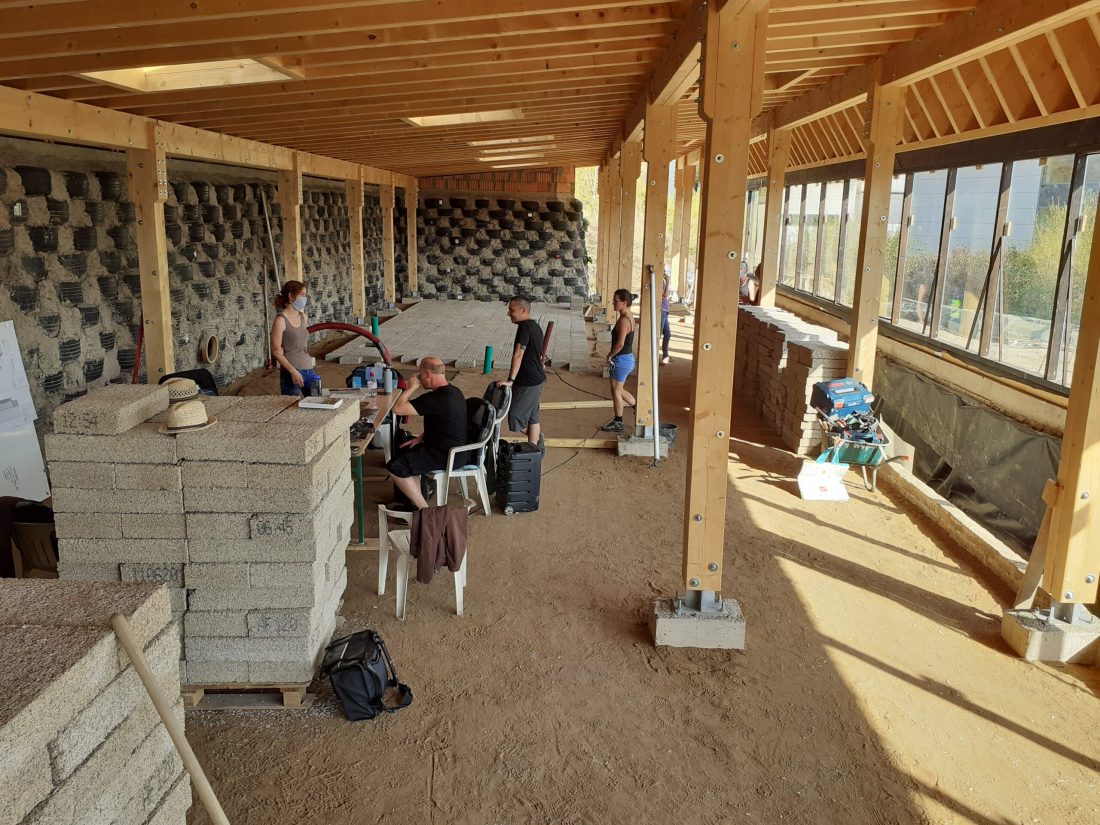
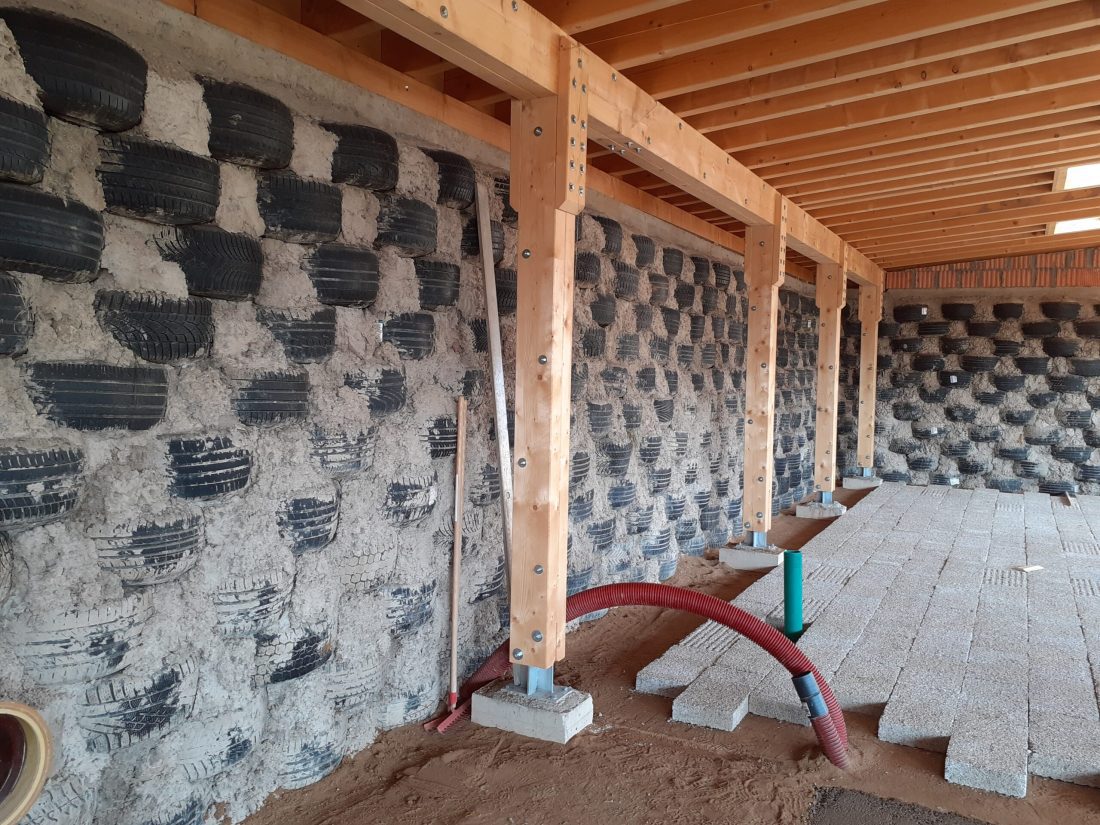
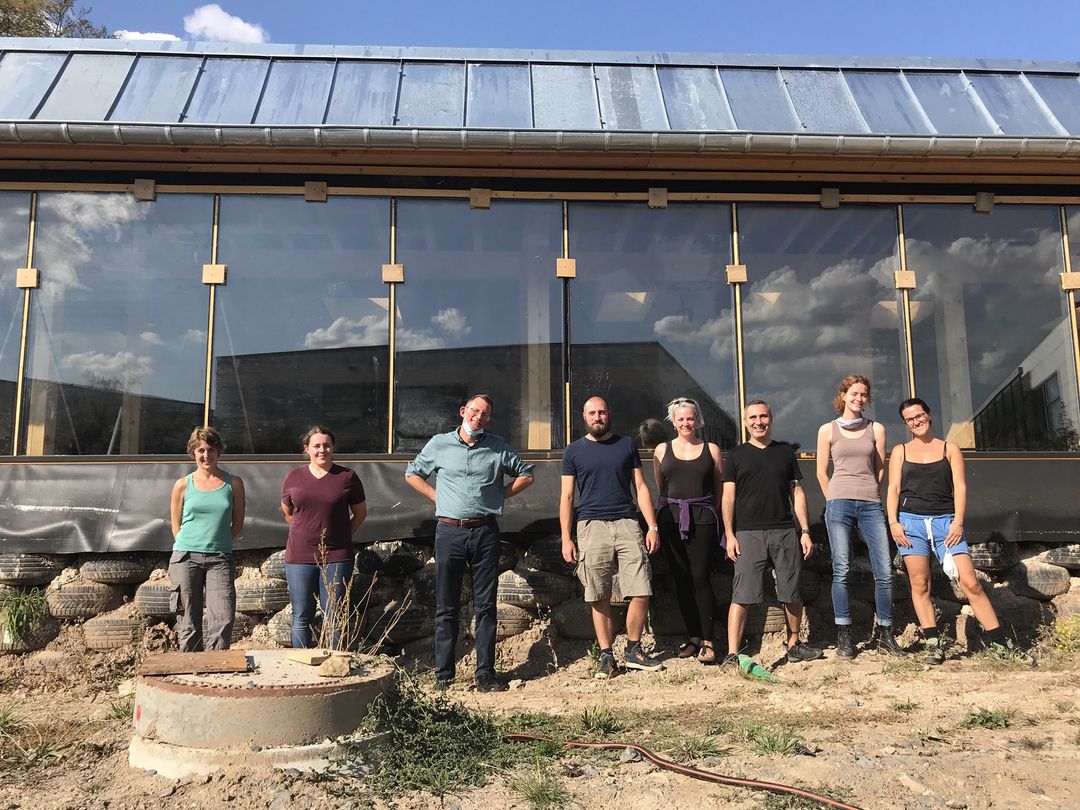
We went to visit an emerging community urban gardening project on a former steel works, growing a diversity of produce in containers given the contamination of the ground, as much a social work project for the neighbouring community as a food garden…
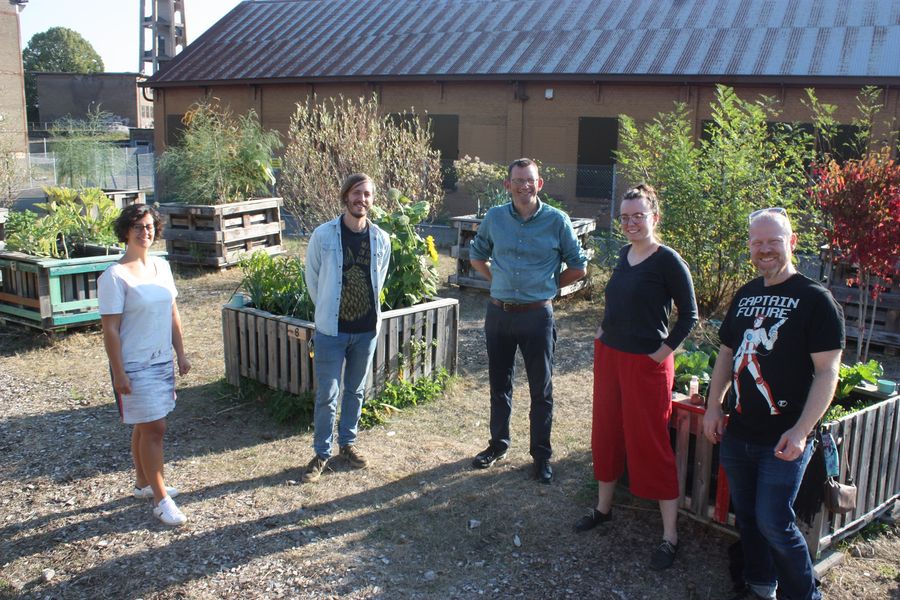
Had a morning conversation/workshop with about 20 people involved in different Transition projects in Luxembourg discussing issues they are facing, which ended in us doing a shared ‘Time Machine’ exercise, followed by some What If question creating. Fascinating to get a flavour of how Transition working in Luxembourg.
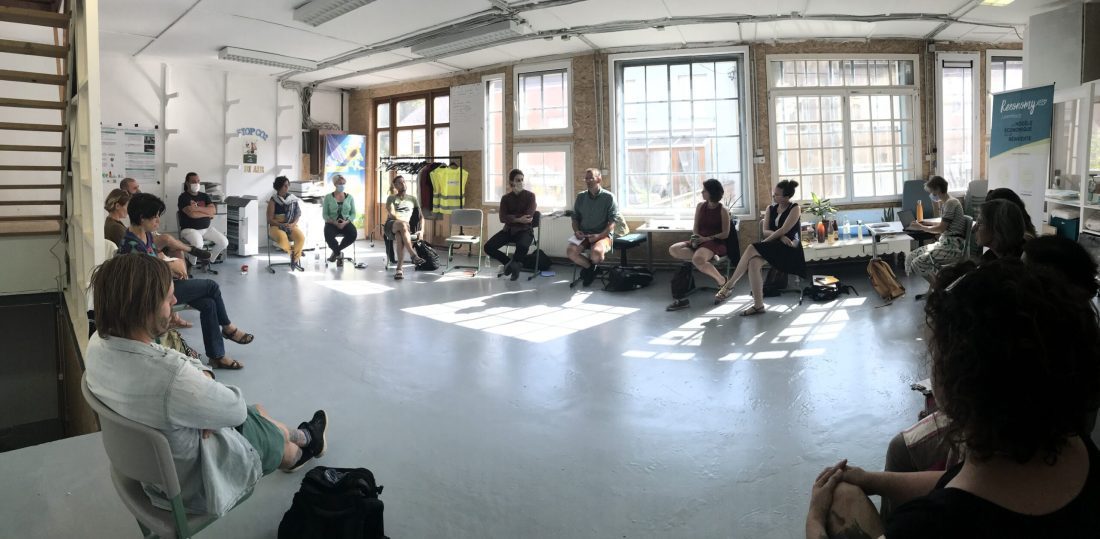
I did a filmed conversation/dialogue with José da Costa at ErwuesseBildung (a Christian organisation redesigning itself to be in service of Transition), as part of their ‘Making Sense of Life’ series:
I ran an afternoon workshop on imagination with 20 participants which was a lot of fun, lots of silliness and games as well as more serious reflections on imagination. Rather than playing ‘Potato Monsters’, a favourite of mine, we started with ‘Conker Monsters’, due to Norry and I finding a conker tree in the centre of Luxembourg and filling a hat with conkers. Some ridiculous monsters ensued. Thanks to everyone who came to that. A lot of fun.
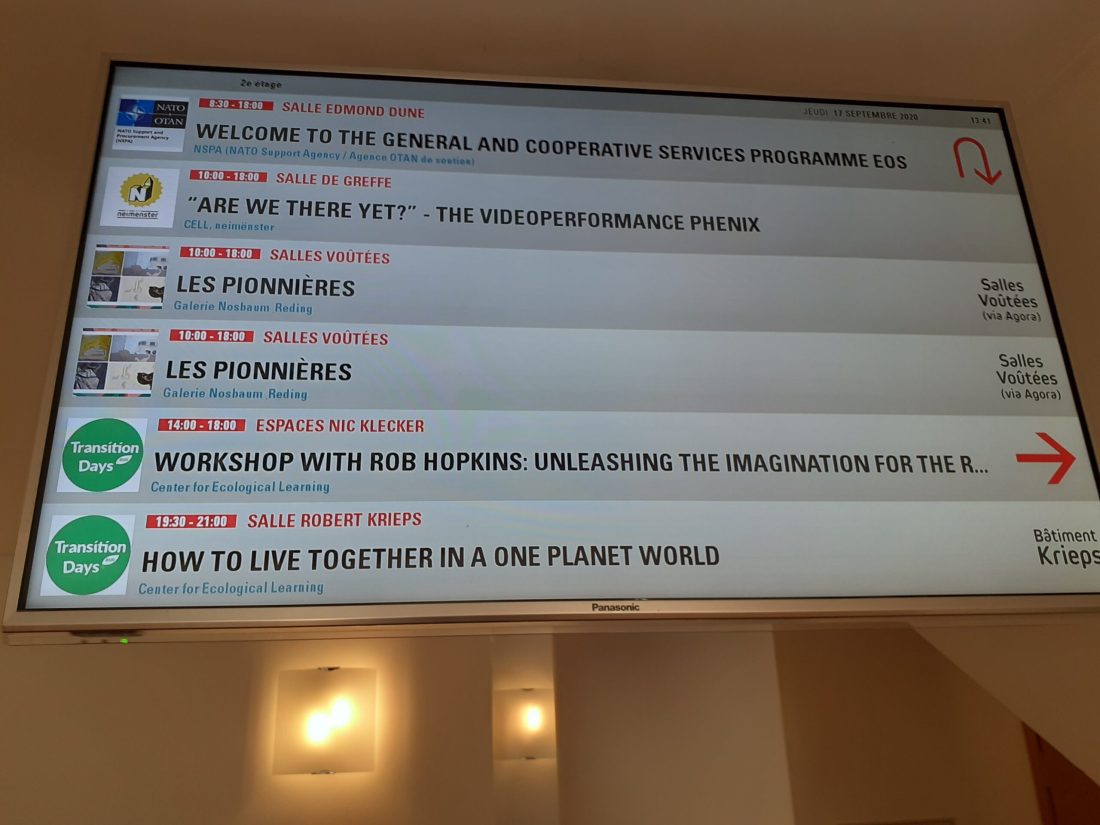
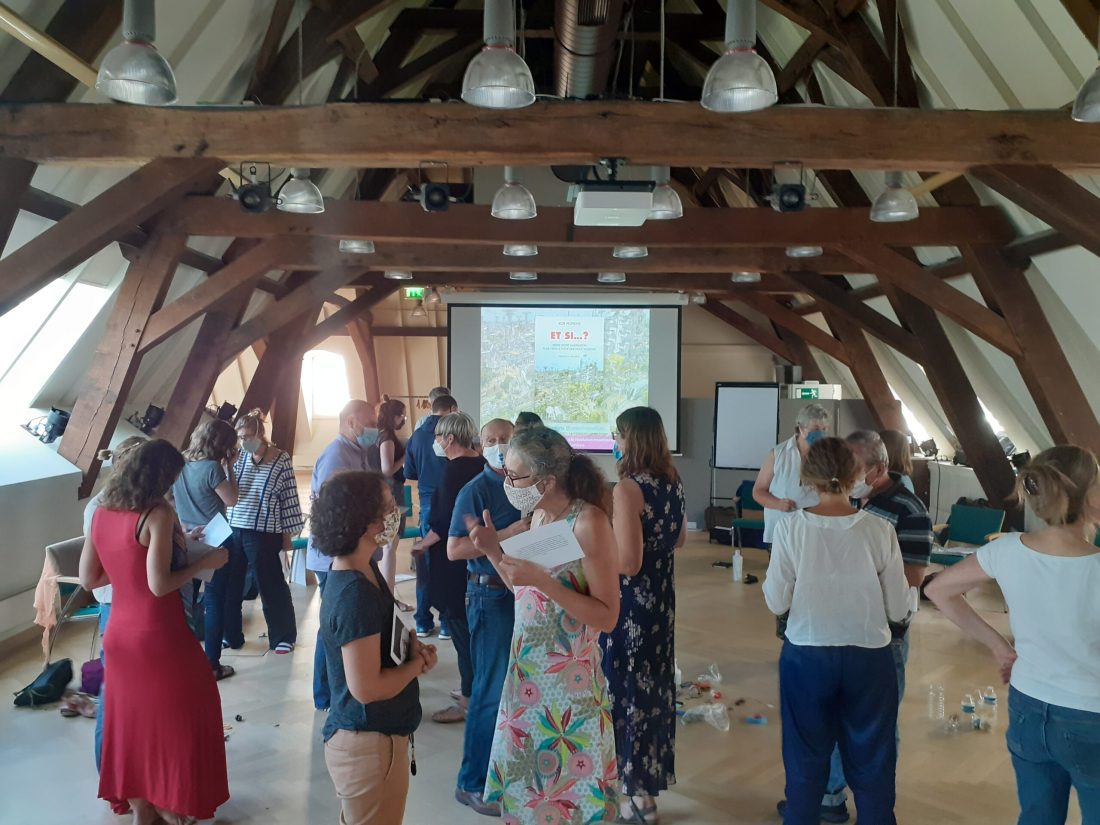
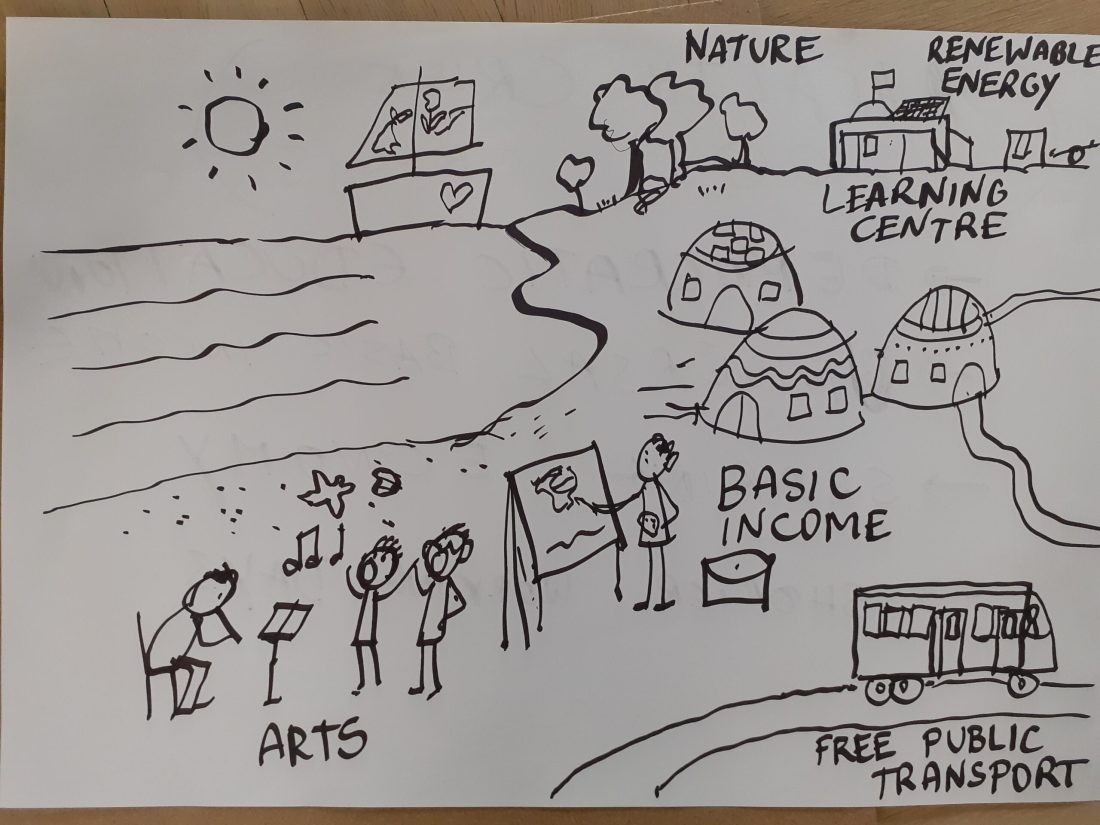
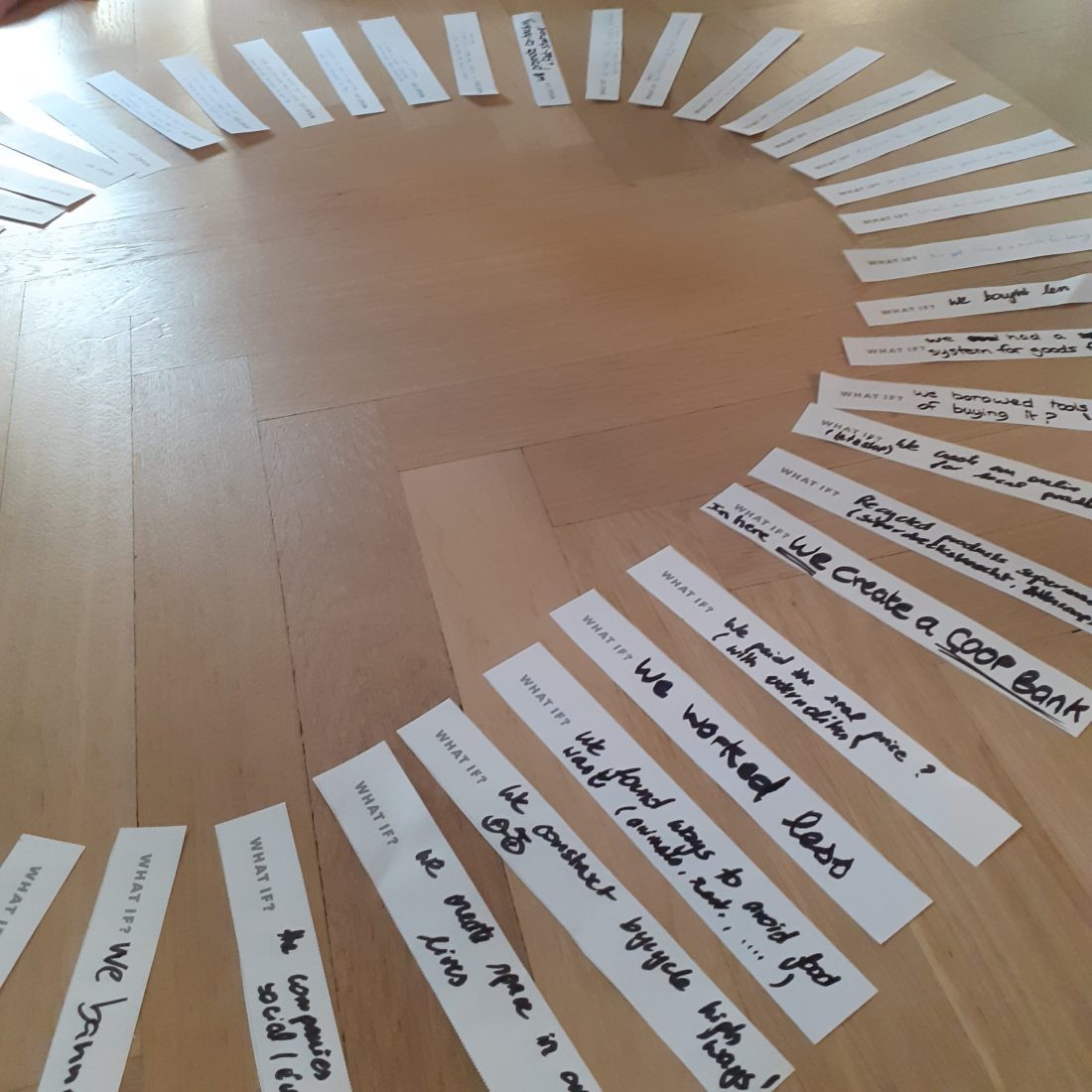
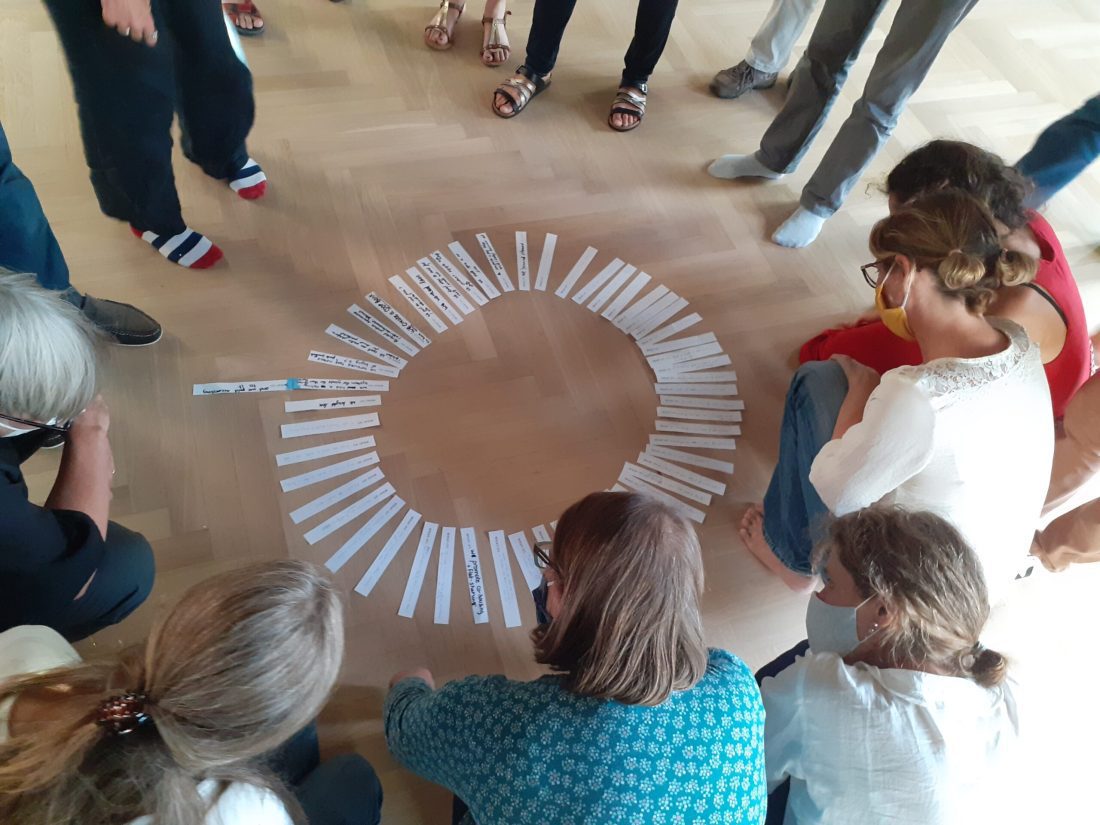
We called into Mesa for lunch, also known as the Transition House. It is a café on a high street, serving great food, in a building owned by the municipality which the Transition group are renovating to turn into a mixture of retails, café, workshop space, hot-desking and so on. Very cool place who also do a fine quiche.
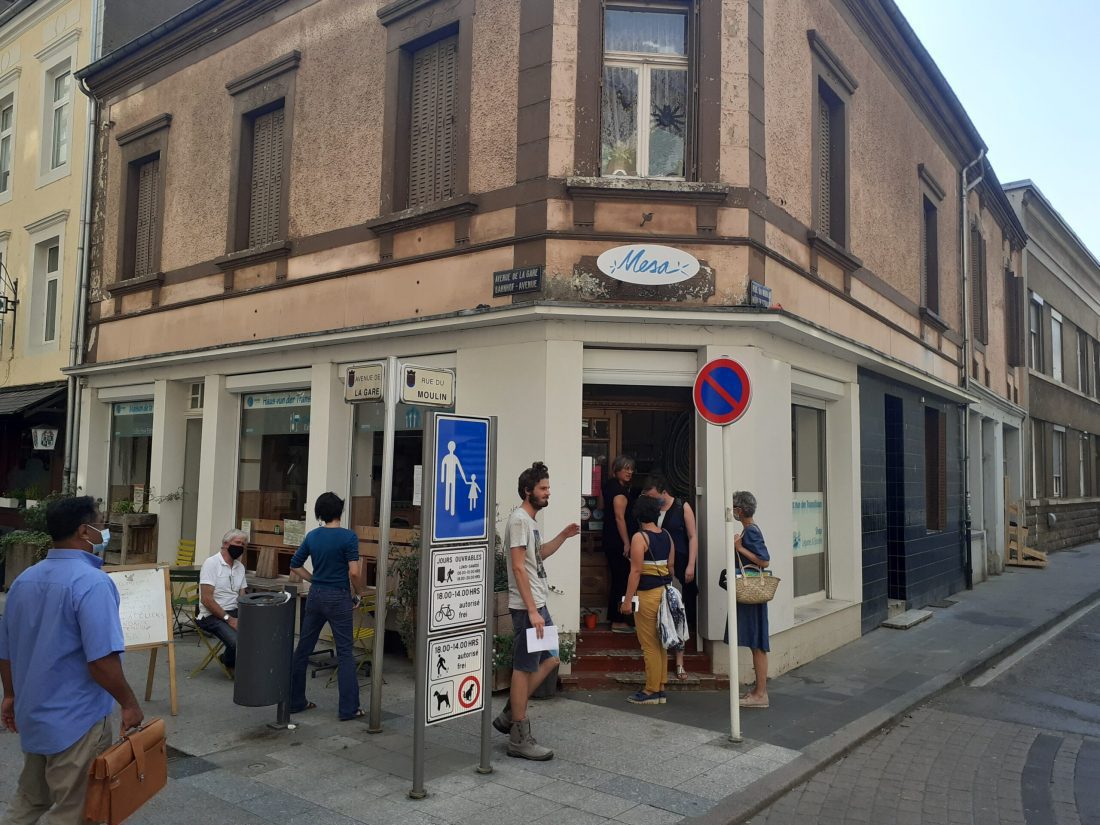
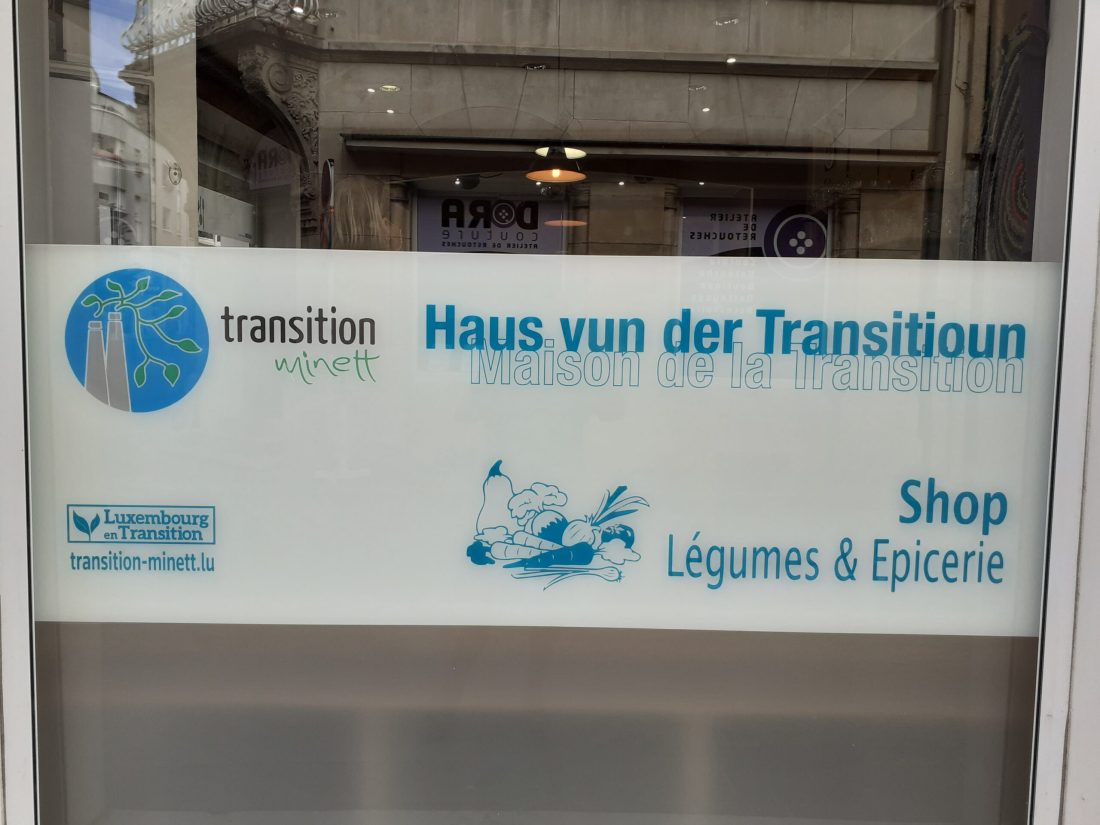
Visited an office complex called ‘Solar Wind’, a pioneering ‘green’ office building that generates all of its own energy, has living walls, wind turbines on the roof, an intriguing pure timber top floor with clay plasters, and some amazing reuse and recycling of materials.
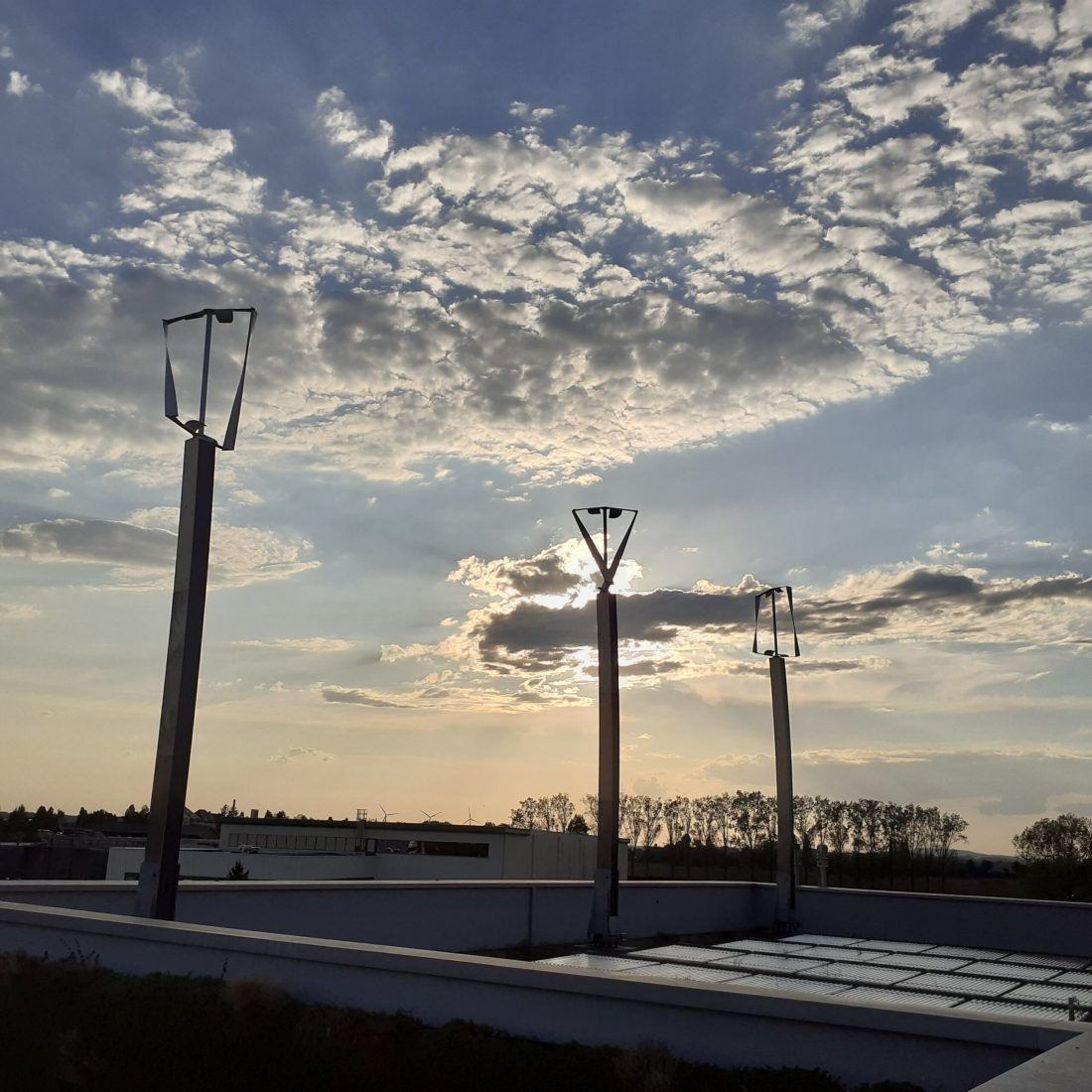
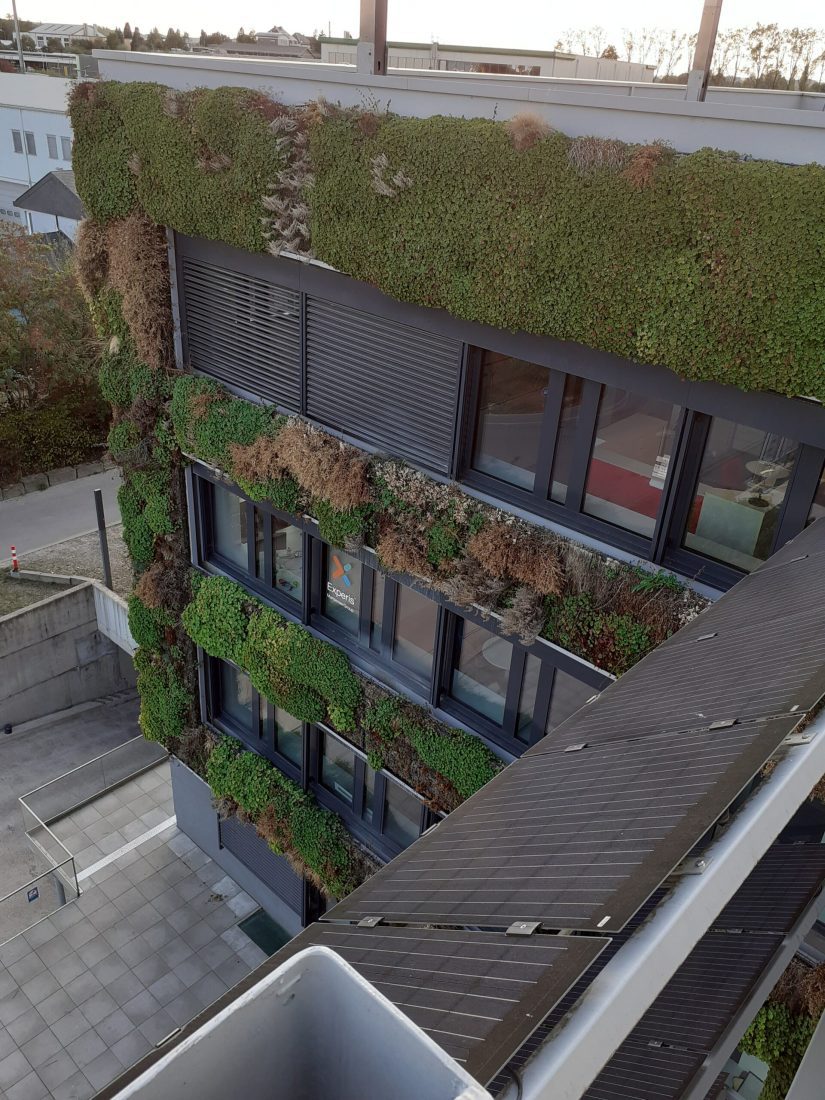
Opposite where I was staying was the ‘Old Monastery Garden’, and incredible terraced urban food garden, a stunning example of what a city full of food production could look like, and how it would transform our experience of that place.
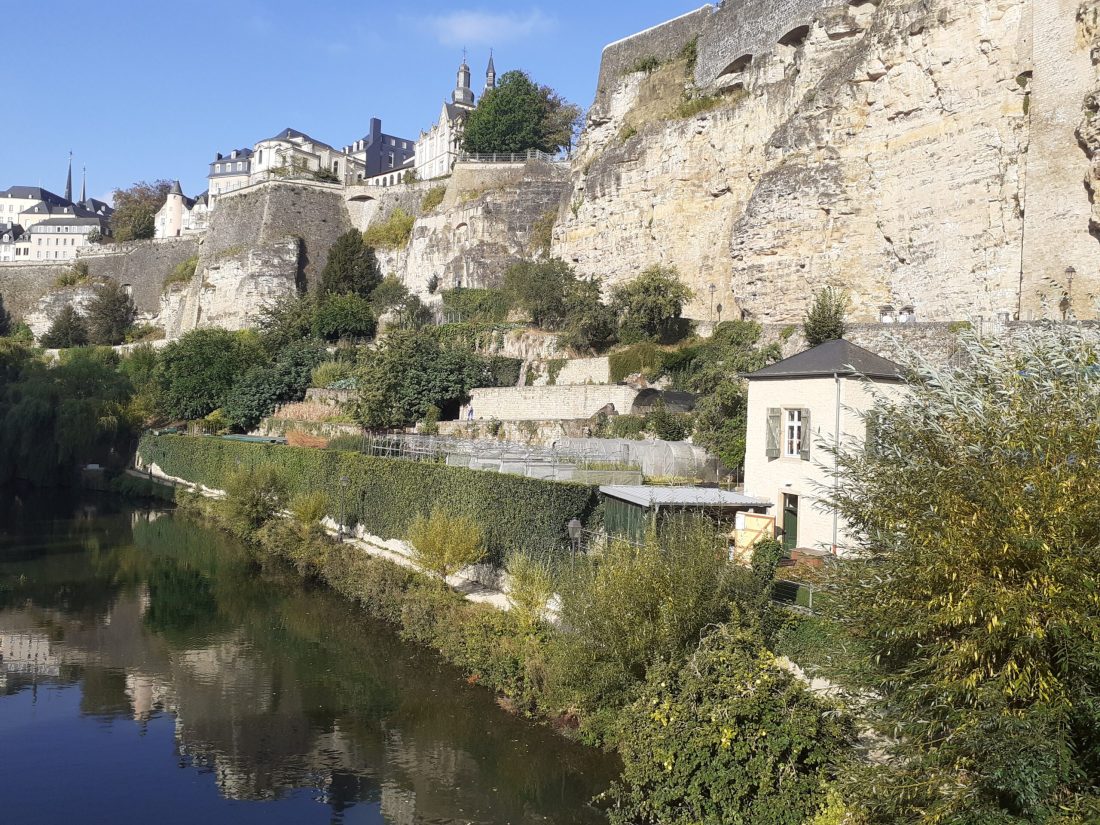
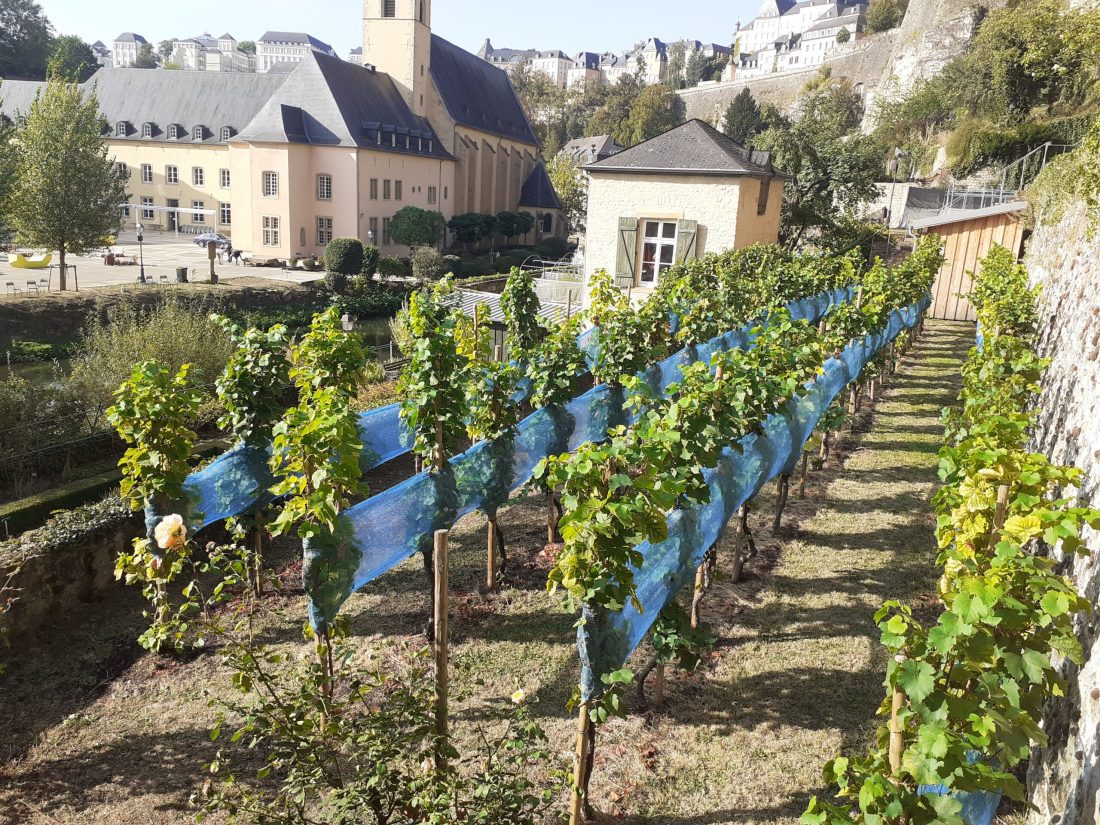
I did a talk (you can see the film of it below). It was the first talk I had done since lockdown, and I noticed an immediate problem. Speaking to a room full of people with masks on means you lose the ability to see how what you are saying is resonating because you can’t see their faces. Are they grinning or grimacing?
So that first night I started by teaching them ‘jazz hands’, familiar to anyone involved with Transition or Extinction Rebellion. The idea is to wave your hands if I say anything that resonates, or that you agree with, or that you like. It works a treat. The evening is filled with flutters of hand-waves, sometimes a forest of hands, it is a beautiful way to work around the masks.
I went to the pre-premiere of a new film about Transition activities in Luxembourg called ‘Eng Äerd’ (‘One Earth’) which was rather good. It included one beautiful animated sequence of an urban landspace being transformed into a garden which I loved so much that the producers very kindly allowed me to have a clip of to use in the rest of the talks on the tour…. Here is the trailer:
And I got to have some very enjoyable time hanging out with Transitioners getting to know them and discussing Transition and many other things too. Thank you all, and thanks to Norry, Rita, Delphine, Marine and all the rest of the team for making it so smooth and enjoyable.
And then I moved on to France.
The trip was organised again by Sans Transition magazine who also organised the two previous tours I have done, hence this one being entitled ‘Transition Tour #3’. They had created a special edition for the tour, featuring one of my lino prints on the cover! It also featured a big interview they did with me a couple of months ago. It started in Lannion in Brittany, alongside my interpreter, the brilliant Xavier Combe who I have worked with before.
The venue for the talk was a huge hall with all the seats set out at 2 metre intervals. Before the talk, we ate supper prepared by a local sustainable cookery school and met with members of the local administration. It started with a Round Table discussion with some local activists and campaigners (you can see the film of that here), and then the talk went well, good questions and answers and a good start to the tour. I also signed a lot of copies of ‘Et Si’, and met many people.
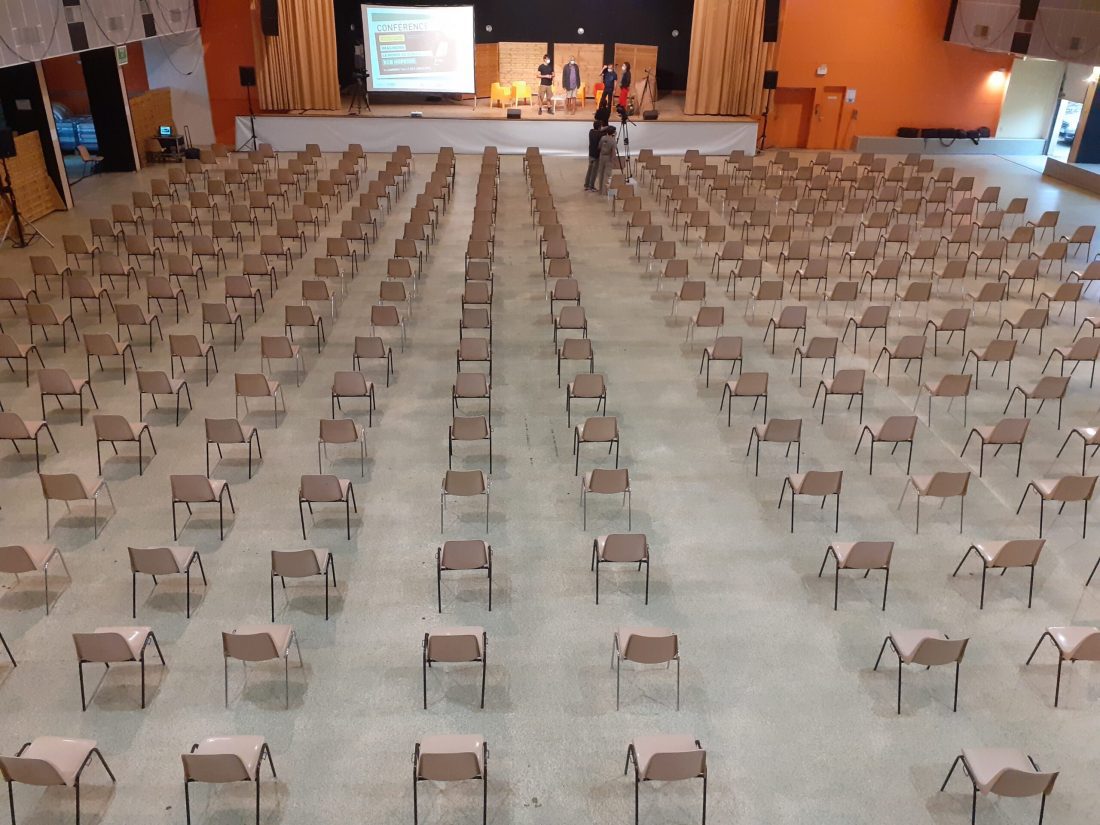
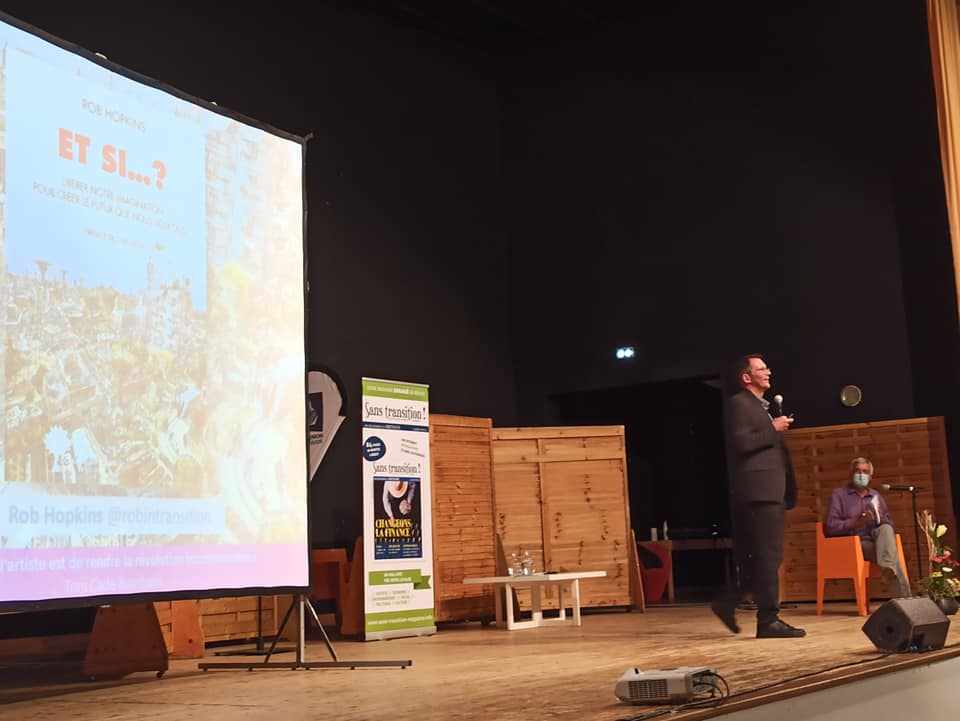
Day Two featured a lot of time on the train, travelling with Xavier from Lannion to Paris and from Paris, on a very hot train, to Toulouse. Travelling so far with a mask on feels like sitting in a sauna with cotton wool stuffed up your nose. And I ran out of water after an hour and there was no bar on the train!
The venue for this evening was a huge tent put up by the municipality for big public events. After a few interviews (below is one them) and meeting with some of those responsible for sustainability work in the local council, we did the talk.
It was one of my favourites from this tour, really dynamic, people really engaged. There was a good contingent from Toulouse en Transition and from the local EnerCoop, lots of jazz hands and we had a great discussion and questions. It was an evening where the ‘Time Machine’ exercise I do felt really powerful, like being in a room full of people who really had travelled to 2030. Pretty magical.
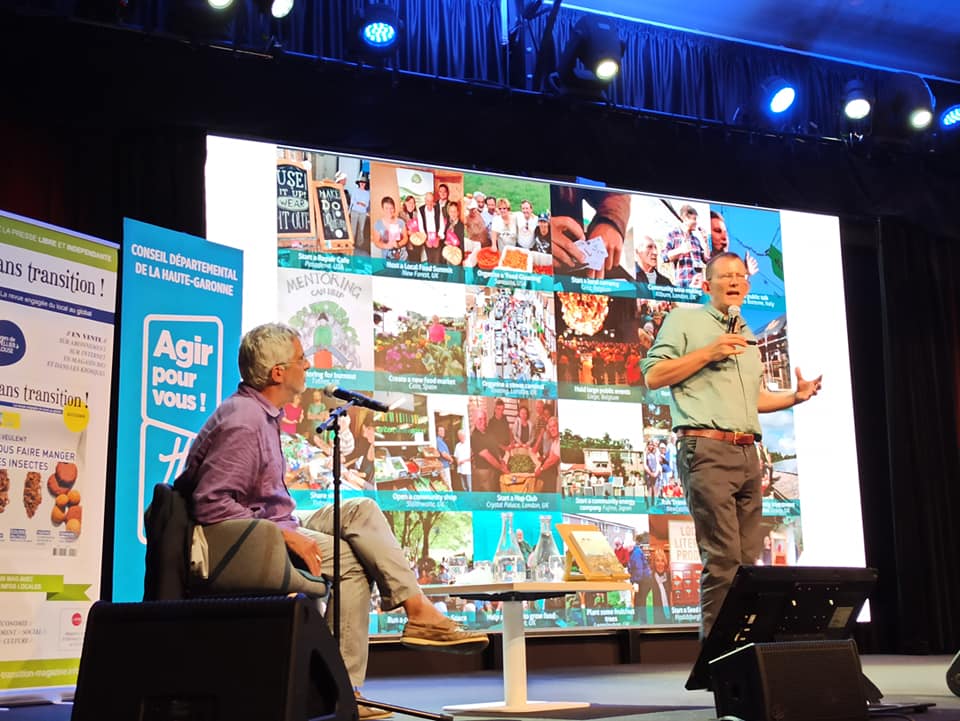
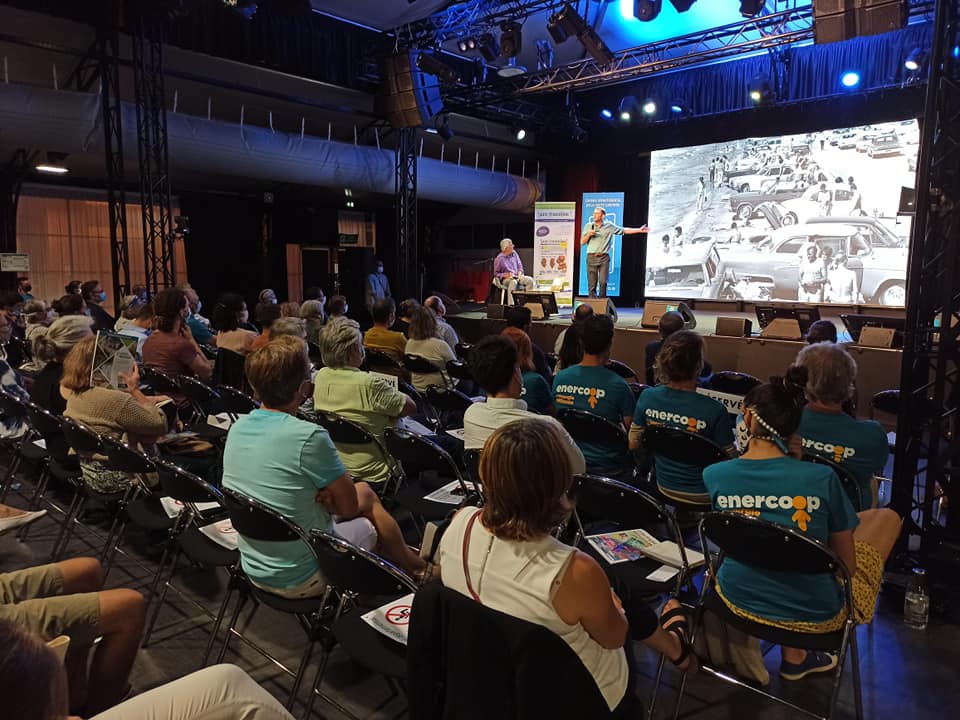
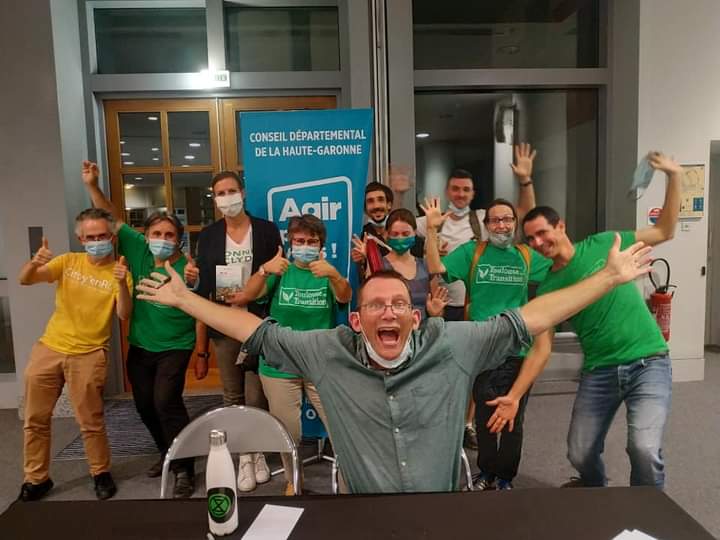
The next day took us to Gignac for an afternoon talk. Gignac is a small town, and the talk took place in a theatre there. It was very hot! Lots of people fanning themselves during the talk. My thanks to the local Transition group who fed us delicious home made food, local wine, and courgette and chocolate cake before we were dashed to Montpellier to get the train to Paris, where we arrived late at night.
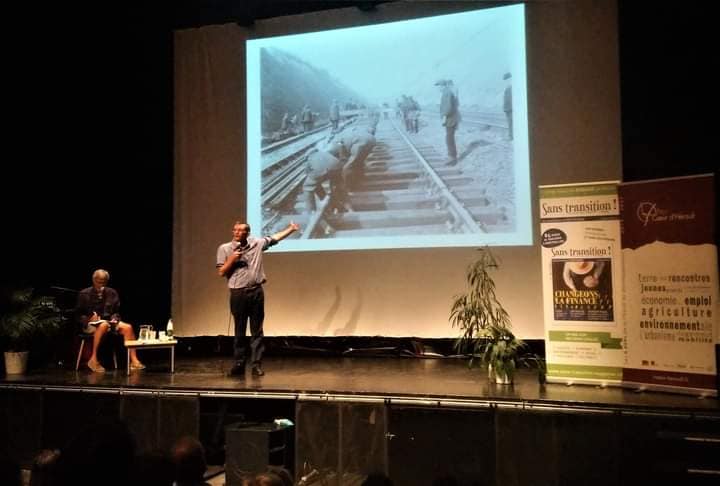
Next morning was a Paris day, hosted by Actes Sud, the publishers of ‘Et Si’. Two press interviews in the morning, then off to the offices of FranceInter, to be a guest on Mathieu Vidard’s radio show ‘La Terre au Carré (which literally means ‘The Earth Squared’). As someone who makes a podcast, it is always amazing to see professional broadcasters at work, quite a skill. You can listen again to that show here.
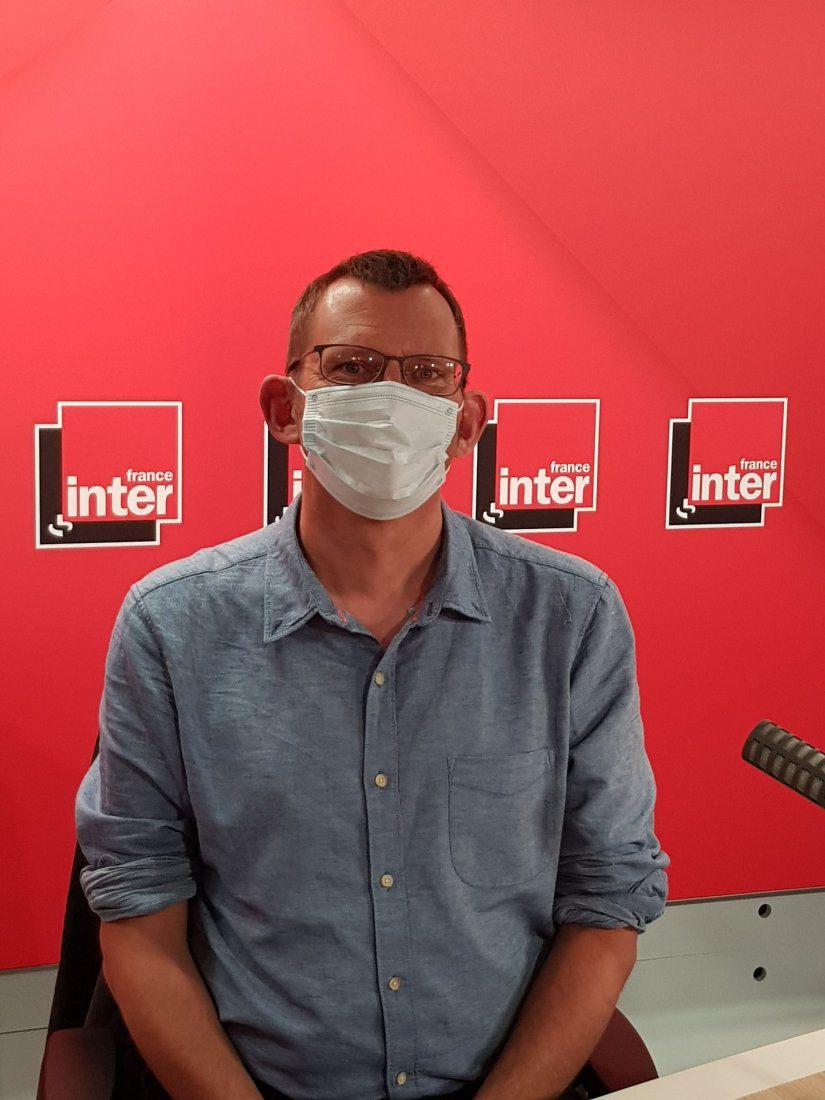
Then we went to a different studio to prerecord an episode of ‘De Cause À Effets’, a regular show on environmental issues, hosted by Aurélie Luneau, along with a second guest, Justine Davasse, who has written a book about ‘zero movements’. We had a great conversation. You can hear it here.
After the interview I was a speaker at a conference on urban agriculture offered by Vinci. Vinci are a huge company in France who do many things that are incompatible with a low carbon world, building roads, car parking and so on. They also have an innovations and foresight department, exploring new ideas, and they were hosting an event on urban agriculture. I spoke about the power of urban agriculture to unlock a revival of the imagination. Some good questions afterwards.
Then a really poor night’s sleep in a hotel room due to an air conditioning unit that clicked and made random noises all night even in spite of being turned off. Grr.
Next morning began with an interview at Le Train Bleu, the incredible restaurant at Gare Montparnasse with two reporters from the newspaper Liberation. Here is the link to the final article…
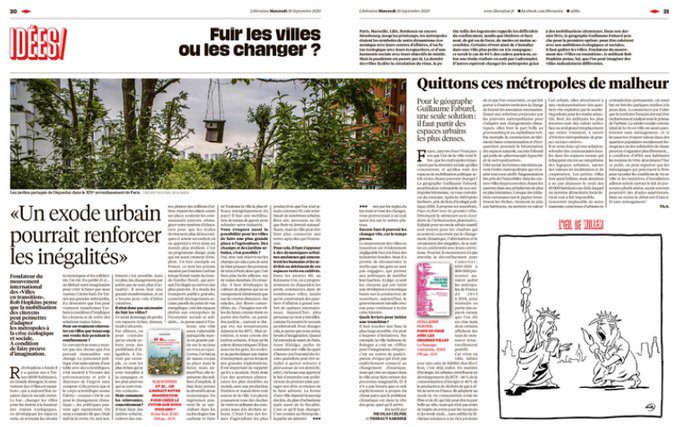
Then the train back south to Avignon (yes, this was a tour that included a lot of zigzagging on trains across the country). This time I was travelling with Rachel, the interpreter for the second leg, who replaced Xavier at this point, like some kind of interpreters baton race.
In Vedène, on the edge of Avignon, we were doing three things. The first was to be part of a press conference to mark an amazing announcement by the local municipality. Here is more detail about that from a post I put on Facebook about it which I reprint in full as it was rather fascinating…
“I was in Vedène near Avignon yesterday, where I was part of the launch of something really rather fascinating, an intriguing spin-off from the Transition movement, and something I haven’t seen before. La Roue (‘The Wheel’) is the local currency for that region which has been in existence for almost 9 years now. Local currencies in France have developed a different model to those in the UK, most of the early pioneers of which no longer really function.
In France, local currencies are supported by a bank called NEF bank. When Euros are exchanged for La Roue (for example), those Euros are put into a fund, and that fund is then used by the bank to support local projects, so there is a double bonus for communities. The press conference I had been invited to be part of was presented by Grand Avignon, the association of all the local authorities including the city itself and all of the surrounding areas and suburbs (association of metropolitan areas). They were gathering to make an announcement about the local currency that was fascinating.

Grand Avignon were announcing that, as part of their local economic plan launched on June 9th, one of its 15 measures which formed a ‘recovery plan’ for the area, that they would be actively supporting La Roue. The currency would now be recognised by law, and seen as a key part of how the authority planned to support and boost local economic resilience, to boost what they called ‘the real economy’.
The first speaker, Joel Guin (the Président of Grand Avignon) stated that they felt it was now “time to put the spotlight on La Roue. The association of metropolitan areas would be supporting the scheme so that €10 would be converted into 12 Roue, a boost for the currency paid for by the authority.
The next speaker, M. Moureau (Vice-president for the sustainable and united economy) talked about how they were aware that the growth of hypermarches and out of town shopping had decimated local economies and that that trend needed to be reversed. So they were giving La Roue a budget to enable them to properly promote the scheme. An advertising scheme will begin promoting La Roue as ‘Our Currency’. From 2021 payment will be accepted in La Roue for a number of public services, along with more incentives to use it.

Anne De Michelis, the spokesperson from La Roue, called this support from the authority “a big recognition”. The scheme, she said, had been kept running for 8 years by volunteers, and that, in a quote that could sum up the entire Transition movement, “it is very difficult when you have a good idea too early”. Laetitia Vinuesa, director of economy and tourism, pushed this idea for some time before it gained traction.
“Why use La Roue?” Anne De Michelis asked. “It stays locally, it creates more wealth. You cannot store it. It is our own currency”. Research shows that Euros in a local economy are exchanged on average twice before leaving. Local currencies are exchanged between 6 and 12 times, bringing much more wealth to the local economy. Using a local currency, she said, is like voting for a different economy, a different future.
It was fascinating to see this level of institutional support for a local currency, and the extent to which the association of metropolitan areas saw it as being a key strand of their post-COVID recovery strategy. Will we see other local authorities in France following this example? Might it be that local money has finally come of age?
Might it be that such a move might just be the first step in local government here starting to level up the playing field in terms of resilient local economies and extractive ones? Might it offer a taste of creative approaches local government could take to support rapid transition at the local scale. We’ll see. But sitting there it felt like a pretty important step forward”.
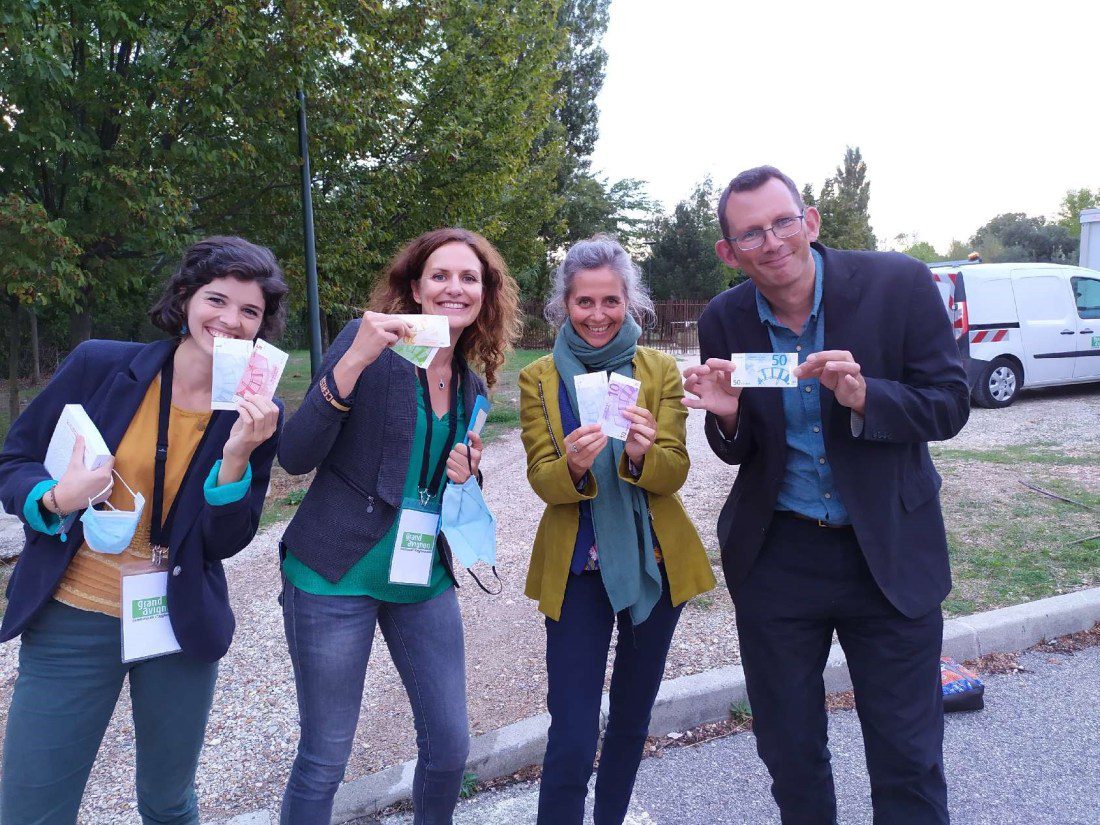
After this there was a meeting for local business people and activists, where I spoke about Transition and about REconomy, and people asked questions and we had a great conversation about how the future of business and of joined-up action could look in that area in the future. In the evening I did a big talk there in the Opera House on the edge of Avignon, lots of people and a really great engaged evening. My thanks to BioCoop for our delicious evening meal and to Romain, who at the end of each of the final few talks on this tour, when I was signing endless copies of ‘Et Si’, always managed to put a cold locally brewed beer into my hand. Appreciated.
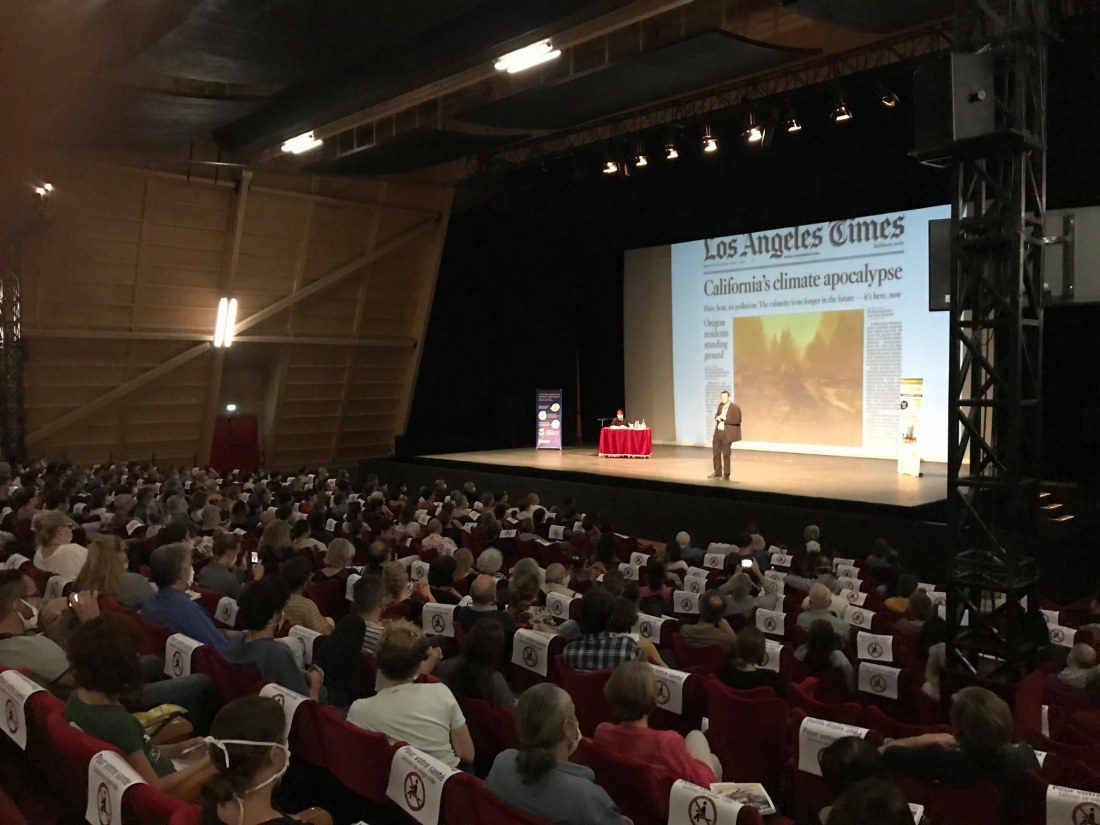
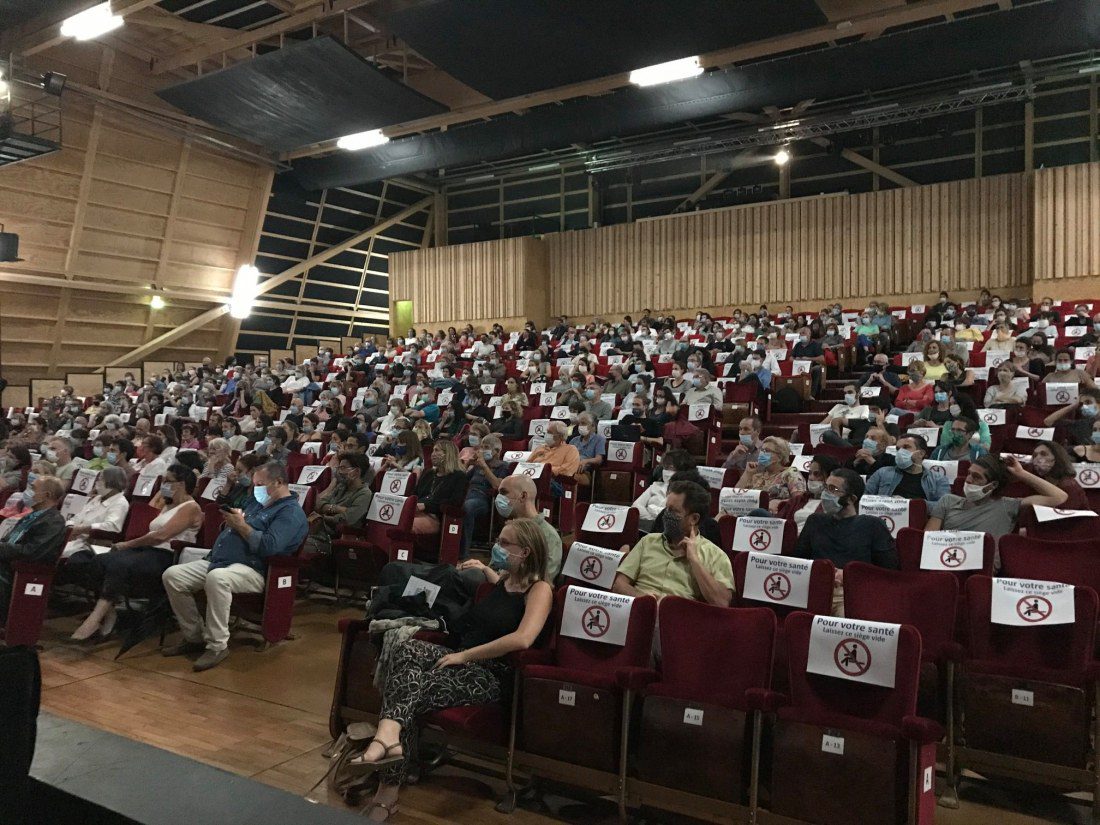
Tuesday began with another train ride, this time to Saint-Etienne, and from there to Clermont-Ferrand. First port of call was a huge bookshop in the centre of town, where I did a short reading from the book, followed by a very lively question and answer session and then some book signing.
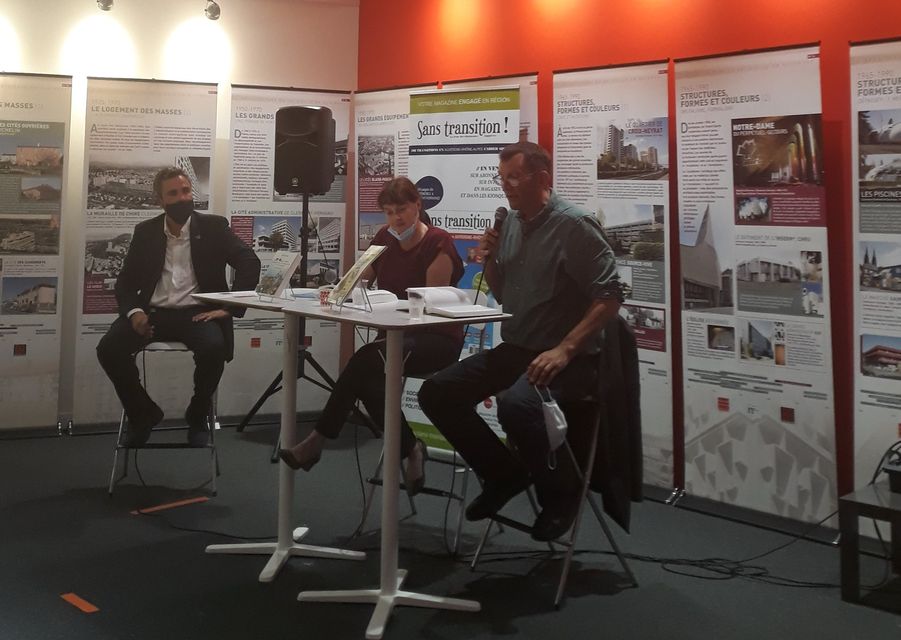
The evening talk was in the most amazing venue of the whole tour. This time it really was an opera house, Volcans et à l’Opéra, an Italian style opera house, with an amazing painted ceiling, just beautiful. People felt really close to the stage and on several levels.
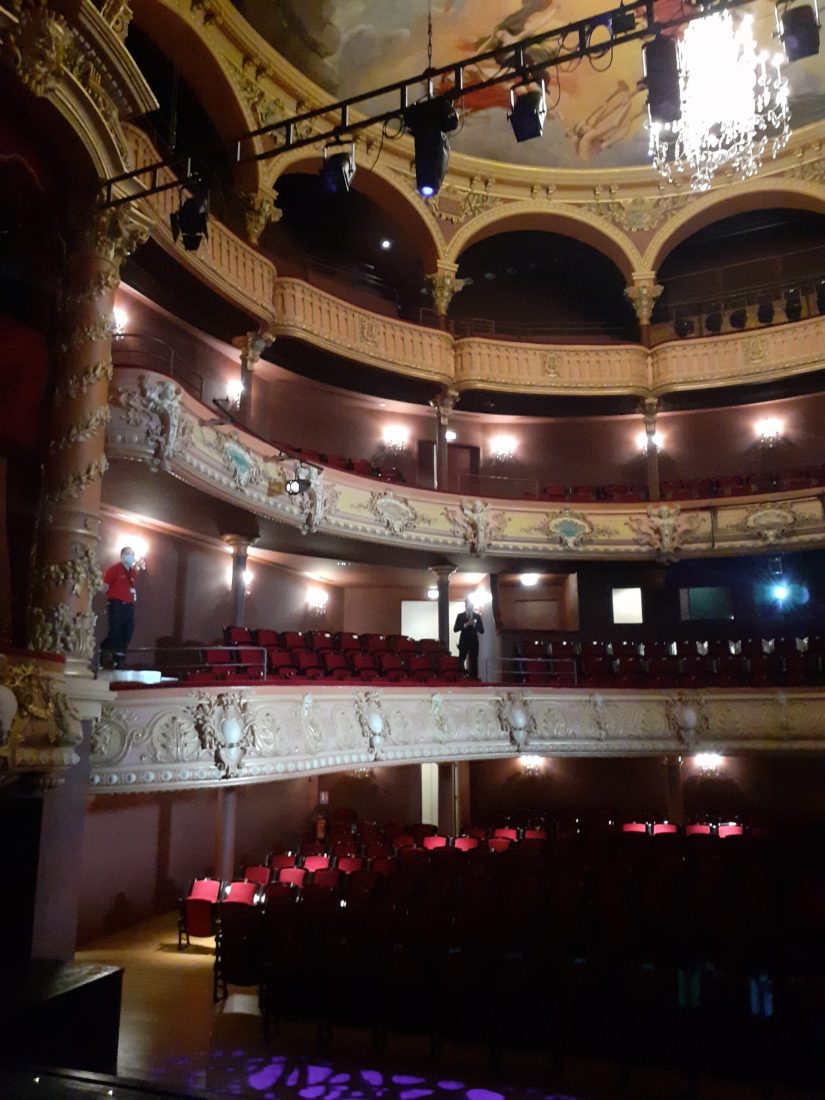
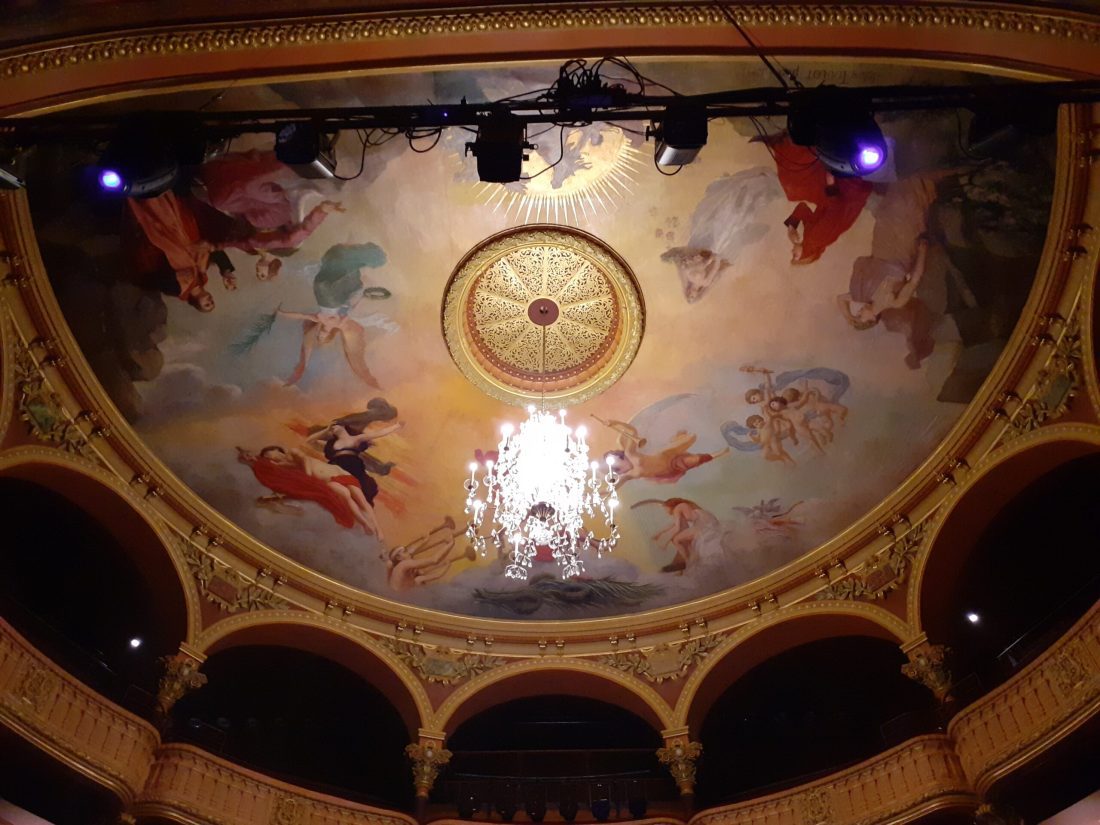
To begin with the lights were so bright I couldn’t see anyone, so I asked them to bring up the house lights a bit so I could see everyone and then it was a lot better. The ‘Time Machine’ exercise felt especially powerful that night, really focused and deep. It was one of those nights you walk off stage feeling sparkles in you, a kind of electricity. I love it.
Once that was all done, we drove about an hour up into the hills in the Loire, so spend the night in a house in the woods in the hills. It was so beautiful, after so long in a mask in hot trains and dashing around in city centres, to smell forest smells, to walk on the earth and to see the distant horizon. A much needed breath of fresh air at that point.
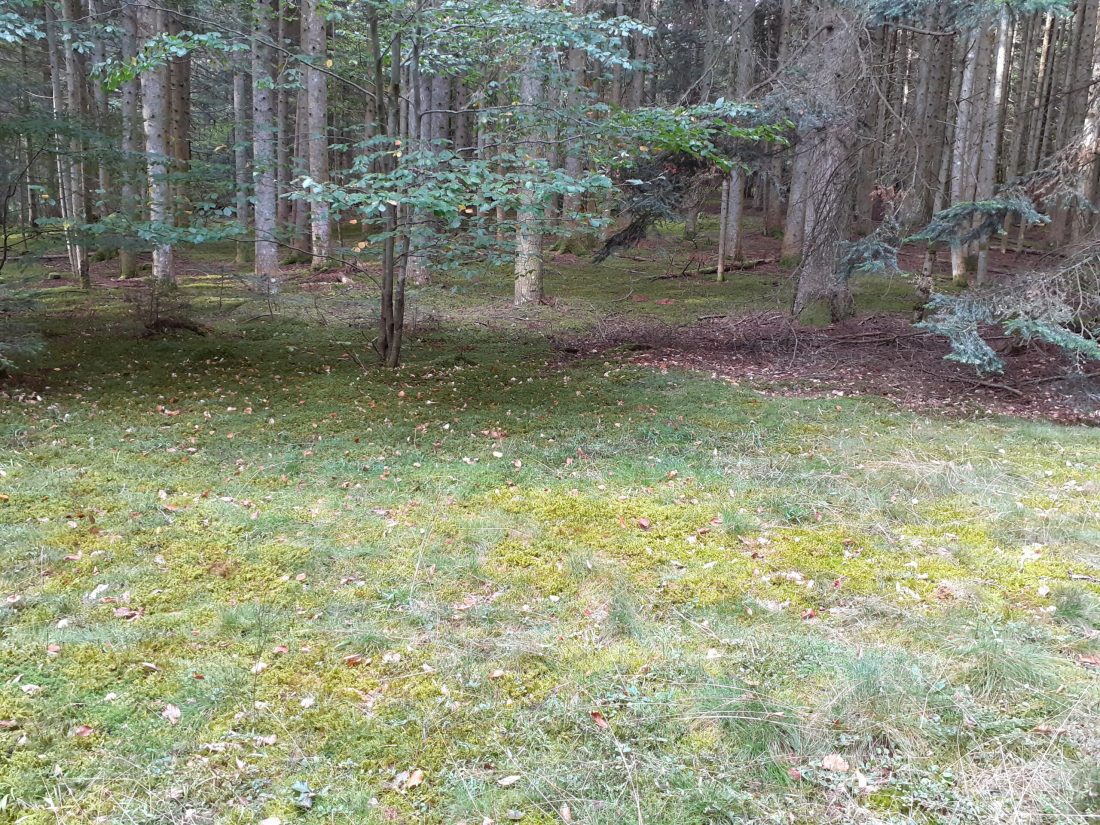
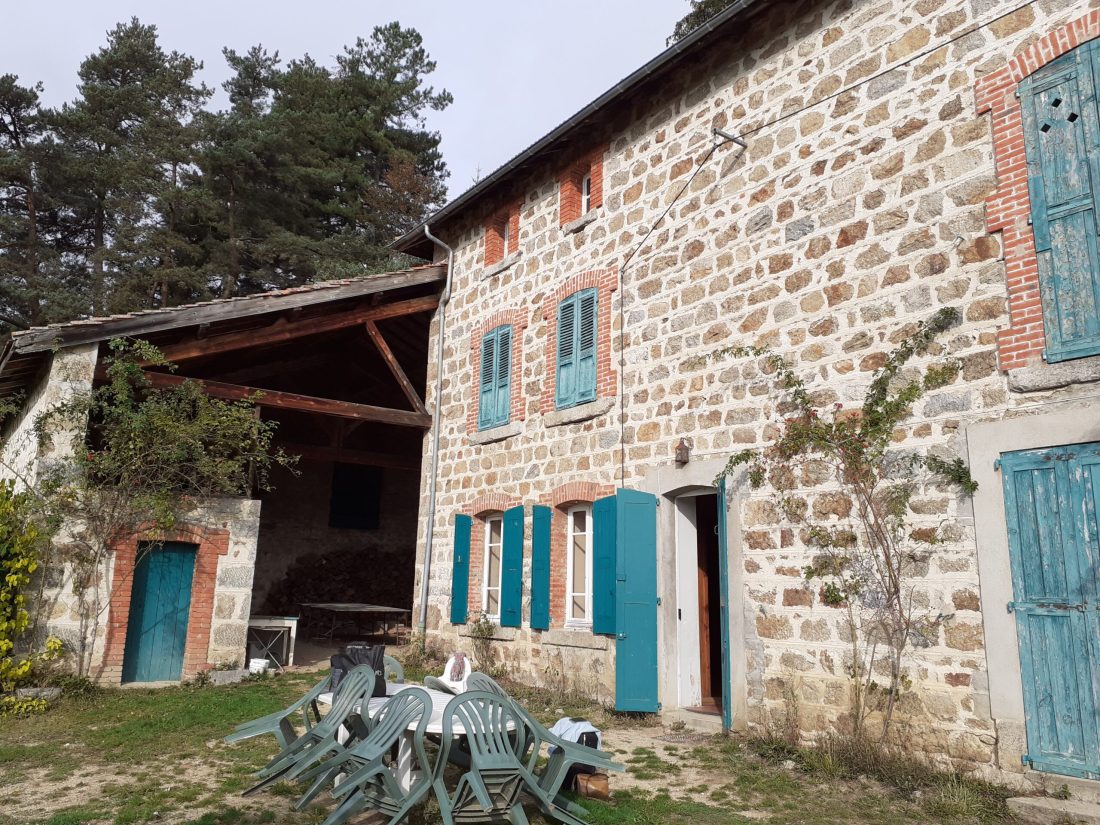
The very last stop on the tour was Mazan. First stop there was a secondary school where I was invited to speak with a group of about 50 14/15 year olds. Never the easiest crowd, but they had some questions, and it was an interesting conversation. At the end, just as we were about to leave, a few of the more interested of them asked it they could ask me a couple of questions in the playground. We ended up having a great discussion about anarchism and anarchist politics stood in a school playground, exactly the kind of conversation I would have wanted to have at that age!
That evening was the last talk of the tour, in an amazing venue, built mostly of local timber. It smelt amazing. We had some time before the talk, so I was able to have a much-needed snooze on a sofa backstage…
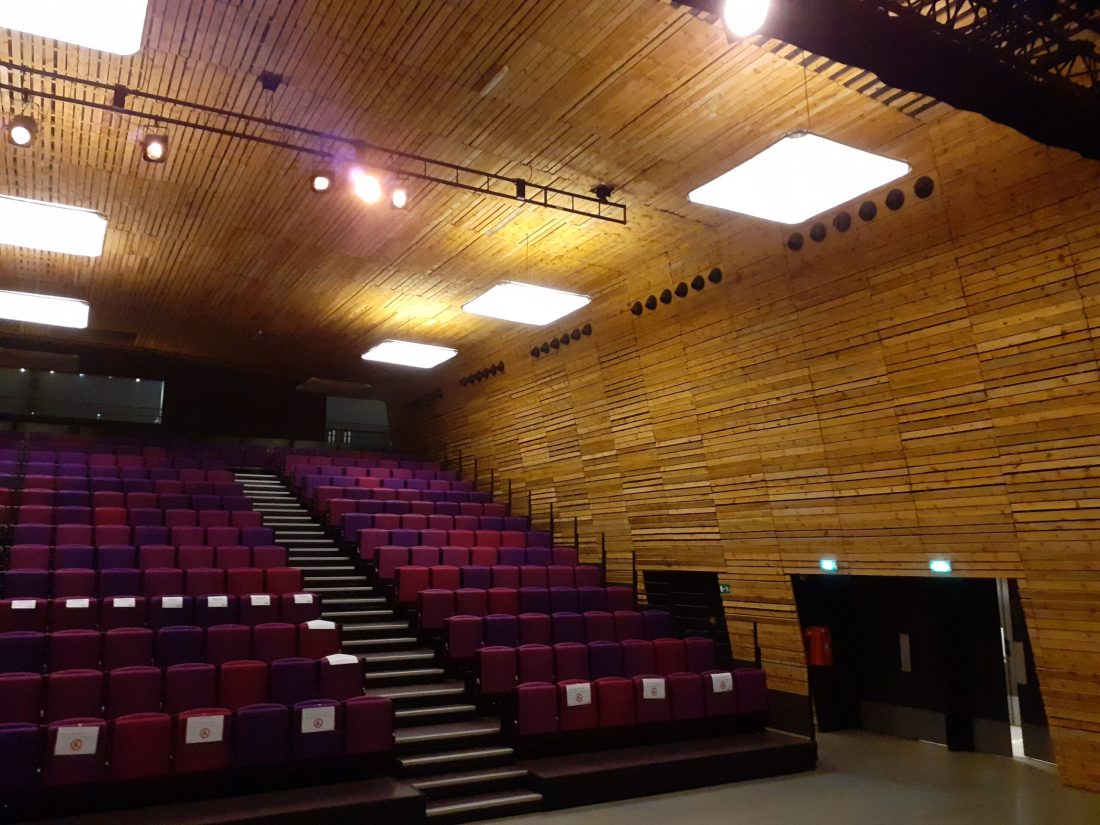
The evening was a fitting finale to the tour – a very powerful Time Machine exercise, in spite of having two gigglers (it happens sometimes), lots of ‘jazz hands’, and the first talk where the Q&A didn’t include any “but surely it’s too late and all of this is a waste of time” questions. I loved it, a fitting end to the tour.
Then a night in another hotel room with even noiser and crazier air conditioning which rumbled and groaned all night to the point where I had to get moved to another room at 1.30 in the morning!
And that was that. My deepest thanks to Xavier and Rachel for trying to keep with my gabble and for being such great company, to Julien and Magali for making it all possible, to Stephane and everyone else at Sans Transition, the amazing team who put everything up and packed it all down again and who worked so hard and so late and whose work meant everything felt so beautiful supported and held. And to all of the sponsors who made it possible, to the local municipality folks who took such care of us, to everyone who hosted us, fed us, and most of all to everyone who came to the talks.
The whole tour felt a bit like one of those disaster movies where the hero is running fast while behind them everything is exploding and collapsing but they just manage to outpace it. As COVID cases rose on both sides of the channels and lockdowns loom, and as new restrictions were put into place and venues closed, if felt like this tiny window in which this tour could have happened had to be seized with both hands, and seize it we did. Right, now to sleep for a week.
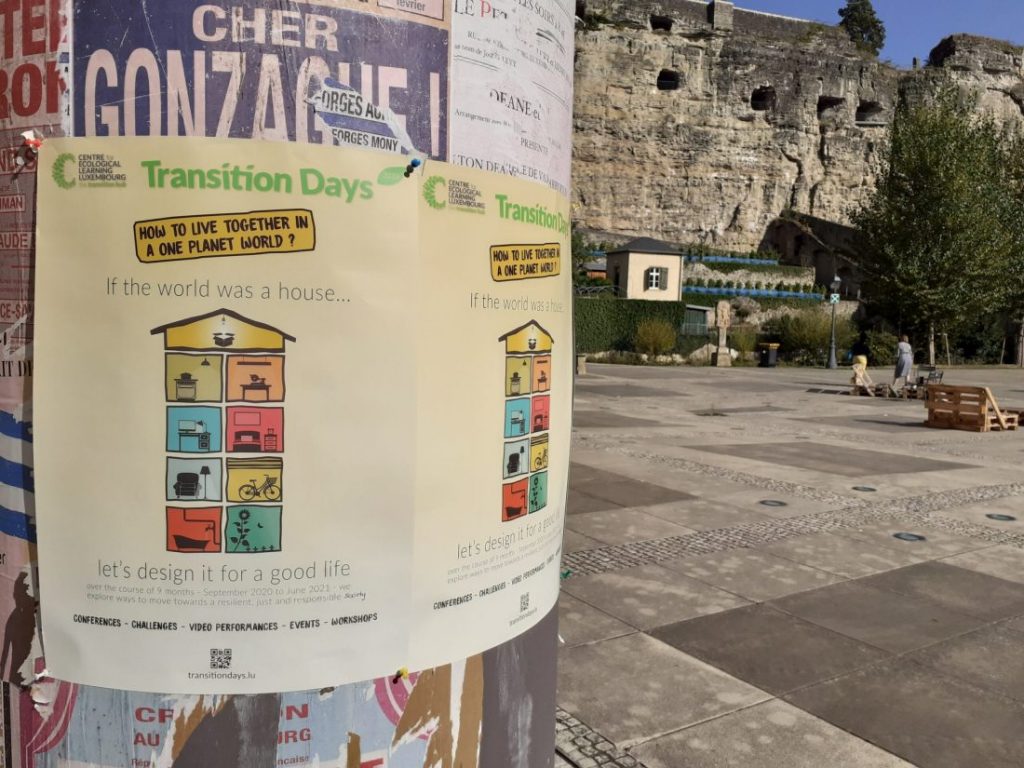
1 Comment
Thanks for sharing, Rob, I know it’s a lot to write up, but it’s always so nice to ride along with you.